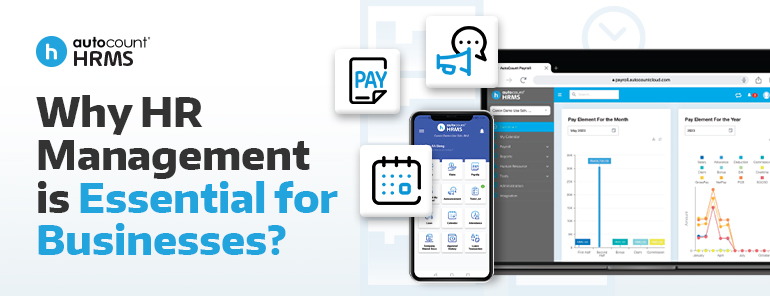
The backbone of a successful organisation is often Human Resources (HR). While its importance is often underestimated, effective HR management goes beyond hiring; it shapes company culture, boosts employee performance, and ensures legal compliance.
Businesses that prioritise HR create environments where employees thrive, resulting in better productivity and growth. Now, let’s discuss why HR management is crucial for any business and explore strategies to make the most of it.
- Talent acquisition and retention
Finding the right talent is crucial to a company’s success as it directly impacts growth, innovation, and overall performance. This is where HR plays an important role in identifying, recruiting, and nurturing the right talent.
Additionally, by investing in retention strategies, such as professional development and competitive benefits, HR helps reduce turnover. This ensures the company can continue to grow with the right talent, while also benefiting from a stable and experienced workforce. Something to note is that 86% of professionals would switch jobs if offered more opportunities for professional development. - Maximising employee performance
HR management helps employees reach their full potential. When providing clear expectations, support, and through recognising achievements, HR nurtures an environment where employees feel motivated to perform well. This, in turn, benefits the organisation as it boosts overall productivity and morale.
In fact, organisations that implement continuous performance management see a 24% increase in workforce performance.
In addition to that, looking into software, such as AutoCount HRMS, streamlines key HR processes with features like leave, claim, and attendance. It improves transparency and reduce errors and automates the submission and approval. - Risk management and compliance
Complying with labour laws and regulations is critical—a key role in HR’s responsibilities. By overseeing policies and ensuring adherence to legal standards, HR helps protect the organisation from potential legal issues, creating a safe and fair workplace for all employees.
Effective HR management ensures adherence to labour laws, reducing the risk of legal disputes and fostering a fair workplace.
Leveraging HR management
There are many ways to improve HR management. Here are some solutions that companies can look into:
- Implementing technology solutions: Technology can simplify many aspects of HR, from payroll to performance evaluations. By using HR Management Software (HRMS) like AutoCount, businesses can streamline HR processes, reduce paperwork, and improve data accuracy. It automates attendance tracking, leave management, payroll calculations, and performance appraisals—this allows HR teams to save time, minimise errors, and focus on more strategic tasks.
- Promoting open communication: Communication is the foundation of a healthy workplace culture—this builds trust and ensures that everyone’s voices are heard. An open communication policy can prevent misunderstandings and promote a positive, collaborative environment.
- Prioritising continuous learning and development: Providing opportunities for training and development not only enhances employees’ skills but also shows that the company values their growth. Investing in employee development can improve job satisfaction and retention rates, benefiting both employees and the organisation.
Unlock the key to a successful organisation
In summary, effective HR management is key to building a successful organisation. From maximising employee performance to ensuring legal compliance, HR’s impact on business success cannot be overstated.
By leveraging HR technology, fostering open communication, and prioritising development, companies can create a supportive environment where employees are motivated to give their best. Remember, HR is more than an administrative function—it’s a strategic asset that drives growth and resilience.